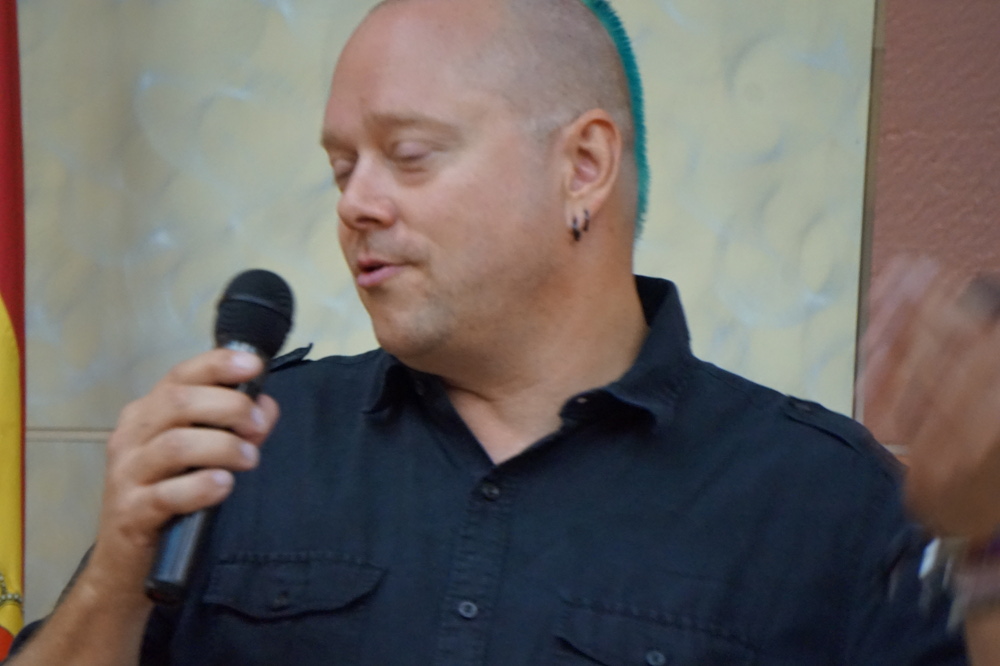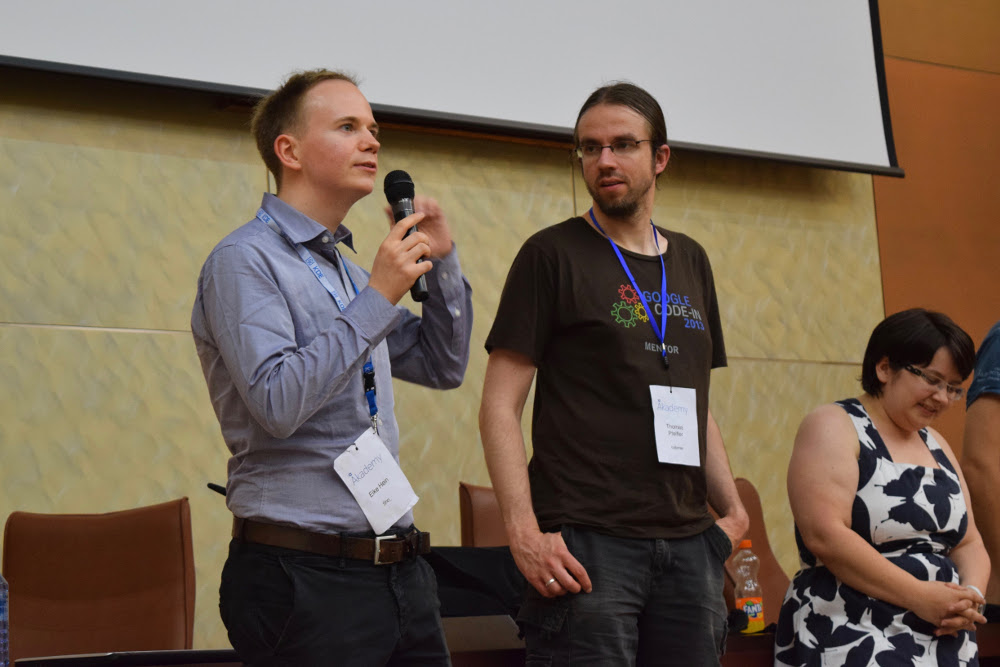Akademy 2017 -- Day 1
During the first day at the Akademy, everything went according to plan and nearly everything was on time. Kudos to the organisers.
The weather was balmy at the beginning of the day and, although Aleix Pol said it was not hotter than a hot day in Barcelona, many of the Scandinavian and Scottish attendees were visibly wilting under the sun. Fortunately for them, the venue is equipped with air-conditioning.
Little known fact about Almería: it is situated in the biggest desert in Europe, the Desert of Tabernas. A better known fact is that that same desert has been used as a location for many spaghetti westerns, including the seminal Sergio Leone movies "For A Fistful of Dollars" and "The Good, the Bad and the Ugly". What is more interesting for some KDE members is that Tabernas has also been used in the filming of at least one Doctor Who episode ("A Town Called Mercy"). Unsurprisingly, the whovians amongst us quickly got busy and organised a trip to the place of the shoot for later in the week.
The Talks

community of volunteers and the industry with MusicBrainz.
Robert Kaye did not disappoint and delivered an entertaining keynote on how MusicBrainz, a community-powered non-profit, has managed to be THE database of musical metadata. MusicBrainz's data is used by Google, the BBC, YouTube, Amazon, and nearly everyone else (including most FLOSS media players).
Jean-Baptiste Mardelle introduced us to the new features, back end and interface of Kdenlive, KDE's video editing software. Apart from having cleaner code and being more stable, upcoming versions of Kdenlive will sport intelligent clip cutting, resizing and inserting, making life for video editors much easier.
As expected Aditya Mehra's talk on the Mycroft plasmoid was another of the highlights of the day. The topic, after all, is intrinsically interesting -- there is something about issuing voice commands to an AI assistant on your desktop that appeals to everybody.
During the mid-afternoon Ask Us Anything session, attendees had the chance to... well, ask anything to the KDE e.V. board members. Questions ranged from governance to how donations were used, passing through the process of getting elected to the board. Talking of which, it was a chance to properly meet the new board member, Eike Hein, who stepped in for Marta Rybczynska.
Eike, among other things, maintains and develops Konversation, a user-friendly IRC client for KDE. He is also in charge of Yakuake, an original spin on the traditional terminal. Yakuake sits hidden at the top of your desktop and you can unfold it like a blind when you need it. He discovered KDE when test running Corel Linux (does anybody else remember that rather bizarre distro?) back in the 90s and started contributing in 2005.
In the evening, Timothée Giet gave us an update on GCompris, the suite of educational activities and games for young children. The improvements in design and to the number of features are turning GCompris into a free, safe and privacy-protecting suite of educational programs as opposed to some of the proprietary alternatives out there.

answering attendees' questions.
Agustín Benito, on the other hand, pointed to new sectors KDE should probably be looking into. Agustín has been working on Free Software on embedded devices for the automotive industry for some time now and reckons this is an area in which KDE could grow and even become a mainstream technology.
At the very end of the day, in the very last session, there was a lively debate on writing and how developers could better describe their projects to a larger audience. The discussion was animated enough to make us forget the time and, finally, we were all thrown out.
Day 2 promises to be equally fun.
About Akademy
For most of the year, KDE—one of the largest free and open software communities in the world—works on-line by email, IRC, forums and mailing lists. Akademy provides all KDE contributors the opportunity to meet in person to foster social bonds, work on concrete technology issues, consider new ideas, and reinforce the innovative, dynamic culture of KDE. Akademy brings together artists, designers, developers, translators, users, writers, sponsors and many other types of KDE contributors to celebrate the achievements of the past year and help determine the direction for the next year. Hands-on sessions offer the opportunity for intense work bringing those plans to reality. The KDE Community welcomes companies building on KDE technology, and those that are looking for opportunities. Join us by registering for the 2017 edition of Akademy today.
For more information, please contact the Akademy Team.